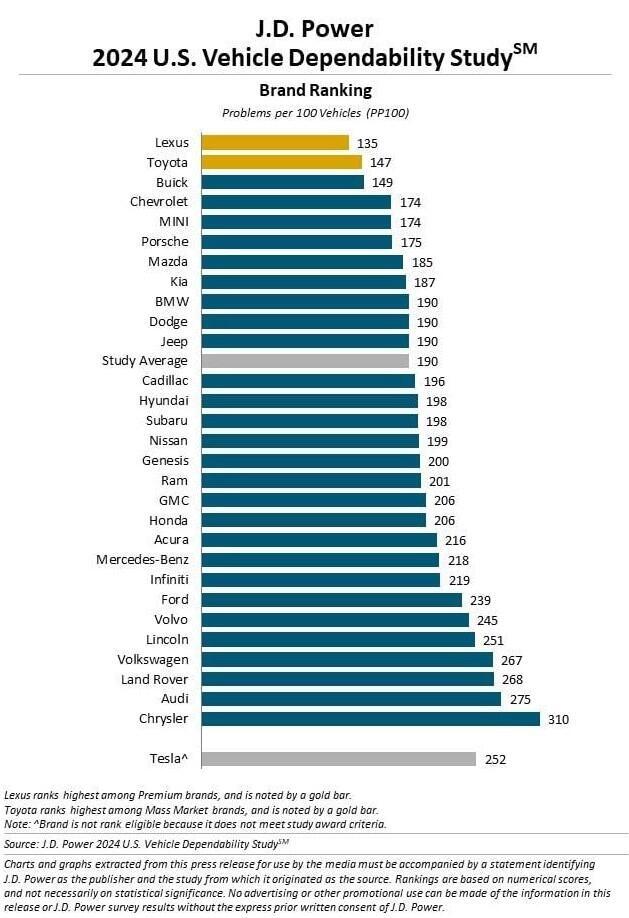New cars are experiencing more malfunctions, according to a vehicle owner survey recently conducted by the influential research firm J.D. Power among U.S. consumers.
Read more:
The main conclusion of the survey is that modern vehicles exhibit more problems in their first three years than in the past.
The survey, which has been conducted for 35 years, regularly carries out dependability surveys among tens of thousands of drivers, with the latest covering no less than 30,000 participants.
Participants were asked to report on 184 types of malfunctions across nine categories: exterior condition, interior condition, multimedia, controls-displays-features, heating and cooling, seats, active safety systems, power units and driving experience.
The survey found that the average number of malfunctions in the industry stood at 190 per 100 vehicles, marking a 2% increase from 186 malfunctions per 100 vehicles in the previous survey.
A further increase was recorded in the number of malfunctions discovered during the initial ownership period (up to 90 days), compared to those identified after three years of ownership. The data are based solely on reports from first-hand car owners.
What are the complaints about? Unsurprisingly, the category that received the most complaints was multimedia, with 49.1 complaints per 100 vehicles – nearly double the next category, exterior condition. Among multimedia problems, connectivity issues like Apple CarPlay and Android Auto received the most complaints from vehicle owners (6.3 per 100 vehicles), followed by voice recognition issues (6.1 problems per 100 vehicles).
One might assume that over time, drivers would become accustomed to the safety alerts in their cars, yet it appears that this issue is on an upward trend from the initial ownership phase, where the customer learns to navigate their new ride, to the prolonged period of ownership after three years. The crux of the findings relates to drivers' complaints about lane departure warnings and the autonomous braking system.
Electric vehicles are proving to be more problematic than their counterparts. Electric car owners reported 256 malfunctions per 100 vehicles, compared to hybrid owners who lodged complaints about 216 malfunctions, and those driving plug-in hybrids reported 191 issues, against gasoline car owners who noted 187 malfunctions per 100 vehicles.
Surprisingly, the bulk of complaints from EV owners centered around tire reliability, with 39% of drivers reporting the need to replace their tires within the third year of use, a figure significantly higher than that of other car owners.
As for dependability, Lexus takes the lead for the second consecutive year. According to survey findings, Lexus owners report fewer malfunctions than any other brand, with the Japanese automaker averaging 135 issues per 100 vehicles. This contrasts with BMW, which secures the second spot among luxury vehicles with a rate of 190, mirroring the industry average.
Following Lexus in the dependability race, Toyota (147 malfunctions), Buick (149) and Chevrolet (174) showcase the best dependability in the U.S. market. At the other end of the spectrum, Chrysler (310 malfunctions), Audi (275) and Land Rover (268) were the least dependable among their peers.



